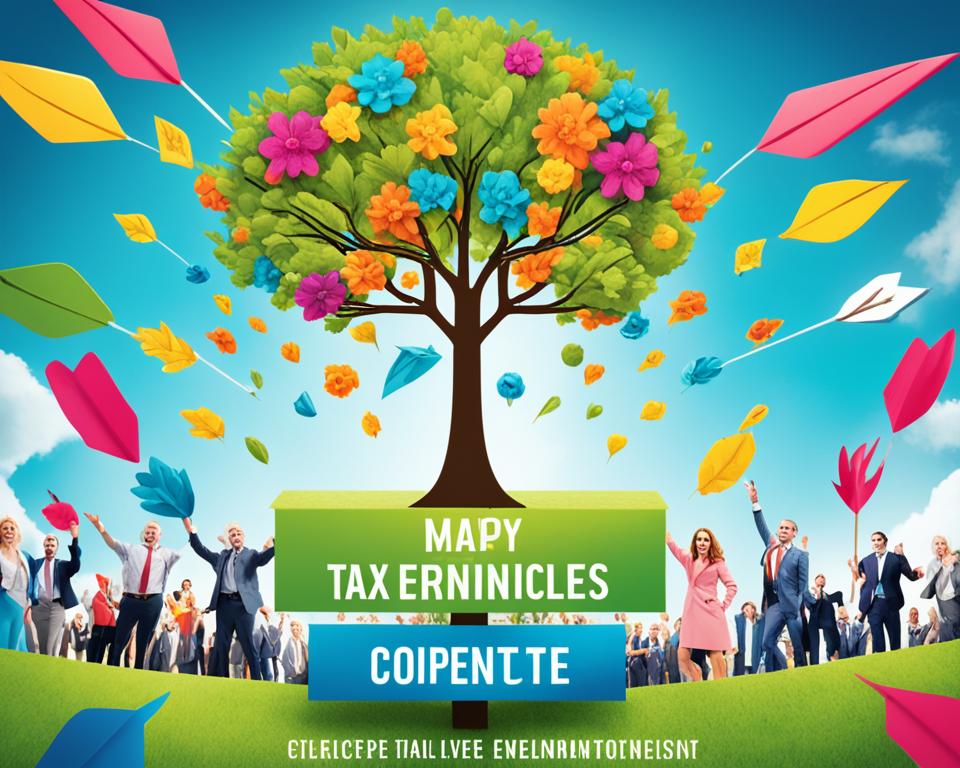Have you ever dreamed of living in Costa Rica's lush, vibrant landscape? Getting citizenship there…

Costa Rica Unveils Significant Tax Changes for Expats
Thinking about moving to Costa Rica or already there? If you’re an expat, recent tax changes could really impact your money. We will go through all the details of Costa Rica’s tax system. This can help both new and longtime expatriates understand the changes.
Key Takeaways
- Costa Rica has switched to a territorial tax system. This means residents pay taxes on their global income. Non-residents only pay taxes on money made in Costa Rica.
- The country has a progressive personal income tax. Self-employed individuals and employed people pay different rates. These rates go from 0% to 25%.
- For companies, Costa Rica has a flat 30% tax rate. However, there are special rules for areas like free trade zones.
- Costa Rica has tax incentives and special rules to boost investment and grow the economy.
- Expats need to know about the tax residency laws. These laws affect how they are taxed on their money from outside Costa Rica.
Understanding taxes in Costa Rica can be hard for expats. With the recent tax changes, staying up-to-date is key to managing your finances. This guide is for those thinking of moving or already in Costa Rica. It will help you make smart choices and follow the new tax rules.
Understanding the Tax Reforms
The Costa Rican tax system works on the idea of territoriality. This means only income from activities in Costa Rica is taxed. It also includes income that benefits from the nation’s resources or infrastructure. Recent tax changes focus on this, aligning Costa Rica with global tax rules and the EU’s good tax practices.
Shift Towards Territorial Taxation
Costa Rica has been changing its tax laws for over thirteen years. This is to meet international tax expectations and adapt to worldwide tax changes. One main goal has been moving to a system where income tax is determined by the source of the income in Costa Rica.
Passive Income and Foreign-Source Income
In this process, Costa Rica has made changes to tax passive income. This includes income from Costa Rican shell companies in big international groups. The new rules make it clear when to tax this kind of income. They say it can only be taxed if it’s made within Costa Rica’s borders. This has brought more certainty to taxpayers.
Compliance with EU Good Tax Governance Standards
Costa Rica’s work to meet global tax standards was really seen when the EU listed it as not following their tax rules. This happened because Costa Rica didn’t tax income made outside its borders. The country responded with a new bill, Number 23,581, changing its tax law to meet the EU’s demands. After these changes, Costa Rica was taken off the EU’s list.
The tax reforms in Costa Rica show the government’s dedication to improving tax systems. This means updating how corporate and income taxes work, as well as following better tax residency rules. These changes are meant to make tax laws clearer, which helps expats and local businesses alike.

Tax Changes in Costa Rica
Costa Rica is making big changes to its tax system, affecting people and businesses. This includes tweaks to personal and corporate income tax rates, the VAT, and social security contributions.
Personal Income Tax Rates
Self-employed folks and independent workers in Costa Rica pay personal income tax. It ranges from 10% to 30% based on how much they earn. There’s also a 15% tax rate for special cases. This setup means those who make more money pay a larger part of the tax share.
Corporate Income Tax Rates
Costa Rica is looking to set a fixed tax rate of 30% for companies. It also plans to increase the tax on profits and capital gains from 15% to 30%. These changes are in line with worldwide corporate tax rules and aim to spread the tax load more fairly.
Value Added Tax (VAT)
The VAT in Costa Rica is getting some changes too. One key change is that medical equipment sales must now pay the full 13% VAT. The tax on plane tickets will climb from 4% to 13%, matching the standard VAT.
Social Security Contributions
Costa Rican employers must help pay their workers’ salary taxes if they’re not properly reported or paid. This update helps make sure companies play fair with social security taxes.
These tax changes show Costa Rica’s bid to upgrade its monetary rules, improve tax adhering, and meet global norms. If you live or work there, keeping up with these could change how you plan your taxes.

Implications for Expats
For expats in Costa Rica, knowing about tax rules is key. They must understand tax residency rules and how foreign income is taxed. If you’re in Costa Rica for over 183 days in a year, you’re a tax resident. Even if you leave sometimes, proving residence elsewhere is the only exception.
Foreign Income Taxation
Expats recognized as tax residents in Costa Rica pay taxes on all their income, local and foreign. It’s important to grasp tax planning and the law here. Knowing how Costa Rica taxes foreign income is crucial for good tax planning.
Tax Planning Strategies
To lower their tax bill, expats in Costa Rica can use several tax planning strategies. This includes smart investments and using deductions. Talking with tax experts in Costa Rica is helpful to understand their tax system.
| Key Considerations for Expats in Costa Rica | Details |
|---|---|
| Tax Residency Rules | To be a tax resident, spend over 183 days in Costa Rica during a fiscal year. Spead days off can still make you a resident if you don’t prove otherwise. |
| Foreign Income Taxation | Costa Rica’s tax residents pay on all global income, even from outside. Planning taxes well helps manage tax levels. |
| Tax Planning Strategies | Expats benefit from smart tax planning, like using tax-friendly investments and getting tax breaks. Staying on top of Costa Rica’s tax laws is important. |

Tax Incentives and Special Regimes
Costa Rica aims to boost its economy by offering unique tax benefits. These help attract new investments and support certain industries. The goal is to make the country a great place for businesses and expatriates.
Free Trade Zones
The Free Trade Zone (FTZ) system in Costa Rica is a major draw for companies. Businesses in FTZ areas can enjoy many tax breaks. These include not paying some import taxes, no corporate income tax for a while, and avoiding some custom duties. Such benefits are to thank for more foreign investments, better exports, and a stronger economy.
Simplified Tax Regime
Small and medium businesses in Costa Rica have a friend in the Simplified Tax Regime. It simplifies filing taxes. Instead of the usual corporate tax system, these businesses pay a set monthly tax based on their income. This makes tax work easier for expat business owners and smaller firms.
Tax Incentives for Specific Sectors
Costa Rica has other tax perks for specific industries. Take the tourism sector, for instance. It gets a break from import duties on items for building hotels, transport, and forest upkeep. These focused savings aim to help grow important industries. They are key to the nation’s financial health.
Using Costa Rica’s tax benefits and special systems can help companies and expats. They can pay less in taxes, keeping up with the country’s tax laws and changes. This smart tax planning can boost their success in Costa Rica.

Conclusion
Costa Rica is changing its tax laws to meet global standards. These changes impact everyone, including expats, in Costa Rica. They focus on international tax rules and a changing world of taxes.
Now, Costa Rica is offering new tax systems and breaks. This makes Costa Rica a better place for people to live and invest. But, it’s important to understand these changes. You’ll need good tax planning and know the new rules for living or investing here.
As Costa Rica’s tax system continues to change, staying updated is key. Working with experts can help you make the most of these tax changes. By learning about the tax updates and planning wisely, living and investing in Costa Rica can bring many benefits.
FAQ
What are the key changes in the Costa Rican tax system?
Costa Rica has updated its tax system significantly lately. These changes are because they want to follow global tax rules better. Now, only income tied to Costa Rica is taxed, thanks to the new territoriality approach.
What are the personal income tax rates in Costa Rica?
If you work for yourself, how much tax you pay varies. It can be from 0% to 25%. This depends on how much money you make.
What are the criteria for being considered a tax resident in Costa Rica?
To be a tax resident in Costa Rica, you must spend over 183 days there in a year. Even if you leave sometimes, you’re still a resident unless you can show you live somewhere else for taxes.
What tax incentives and special regimes does Costa Rica offer?
Costa Rica has some unique tax breaks and special areas meant to encourage business and investment. For example, there are free trade zones and simple tax rules for select sectors.
How do the tax changes impact expatriates living in Costa Rica?
Expatriates in Costa Rica now face bigger tax changes. Where they pay taxes, how much they pay, and their tax strategies are now more important than ever. They must stay up to date with these changes.
Source Links
- https://www.taxesforexpats.com/country-guides/costa-rica/us-tax-preparation-in-costa-rica.html
- https://cpilj-law.media.uconn.edu/wp-content/uploads/sites/2515/2020/06/Offshore-Paradise-Taxation-of-United-States-Citizens-in-Costa-Rica-and-Tax-Policy-Commentary-of-Its-Implications-by-Catalina-Baron.pdf
- https://crie.cr/costa-rica-retirement-visa-benefits/
- https://globaltaxnews.ey.com/news/2023-0957-costa-rican-executive-branch-files-comprehensive-tax-reform-bills
- https://www.ey.com/es_cr/tax/tax-alerts/costa-rica-the-costa-rican-executive-branch-files-comprehensive
- https://consortiumlegal.com/en/2023/10/11/territoriality-of-income-tax-in-costa-rica/
- https://www.dentons.com/en/insights/articles/2023/december/14/costa-rica-income-tax-increase-by-2024
- https://crie.cr/digital-nomad-visa-in-costa-rica/
- https://crie.cr/permanent-residency-in-costa-rica/
- https://crie.cr/citizenship-in-costa-rica/
- https://www.greenbacktaxservices.com/country-guide/tax-guide-for-americans-living-in-costa-rica/
- https://crie.cr/residency-requirements-in-coste-rica/
- https://crie.cr/costa-rica-immigration-expert-services-overview/
- https://www.dentons.com/en/services-and-solutions/global-tax-guide-to-doing-business-in/costa-rica
- https://www.langcr.com/free_trade_costa_rica.html
- https://www.costaricacorporation.com/taxation.html
- https://crie.cr/about-crie/
- https://crie.cr/frequently-asked-questions/
- https://www.worldbank.org/en/country/costarica/overview
- https://consortiumlegal.com/en/2023/05/23/new-income-tax-law-proposed-in-costa-rica/


